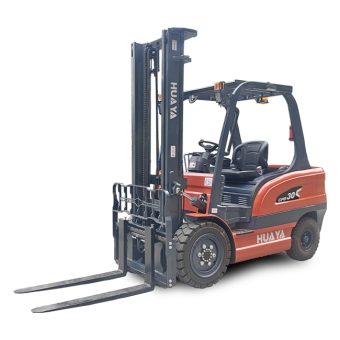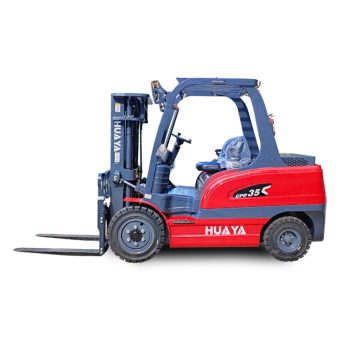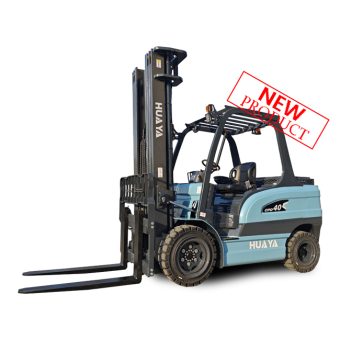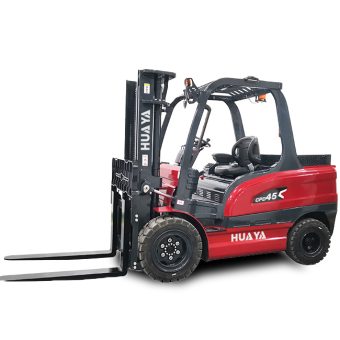
News
As the material handling industry evolves, the spotlight has turned to electric forklifts as a cleaner and safer alternative to traditional fuel-powered models. One of the most common questions surrounding these machines is whether they produce harmful emissions such as carbon monoxide (CO). This article explores the advantages, challenges, and transformative potential of electric forklifts compared to their fuel-powered counterparts.
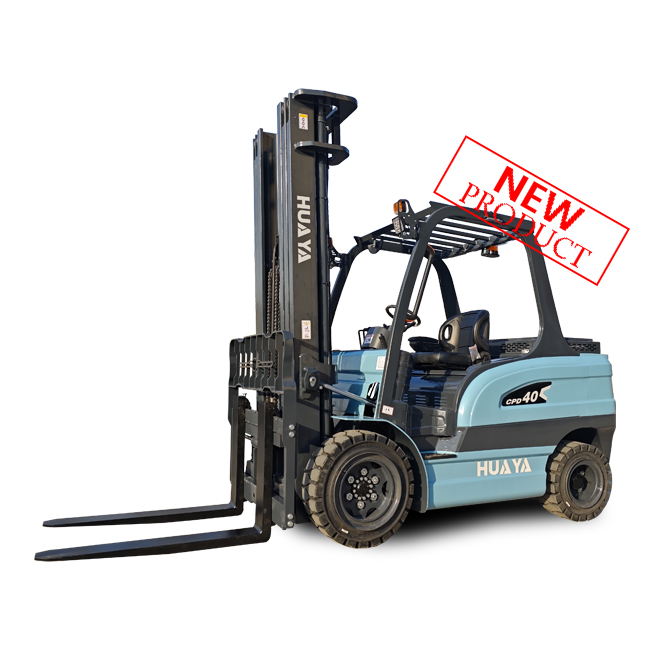
Carbon monoxide (CO) is a colorless, odorless gas that results from the incomplete combustion of carbon-based fuels, including gasoline, diesel, and propane. Exposure to CO in high concentrations can lead to severe health risks, including headaches, dizziness, and even death in extreme cases. The danger is particularly pronounced in enclosed spaces, such as warehouses, where ventilation may be limited.
Unlike traditional forklifts powered by internal combustion engines, electric forklifts run entirely on batteries. This innovation eliminates the reliance on carbon-based fuels, resulting in:
Zero Emissions: Electric forklifts produce no carbon monoxide or other exhaust gases, ensuring a healthier environment.
Improved Air Quality: Operations in enclosed spaces, such as warehouses or manufacturing plants, benefit from cleaner air, promoting employee well-being.
Enhanced Safety: Workers are shielded from the risks associated with inhaling toxic fumes, making the workplace safer and more compliant with health regulations.
| Feature | Electric Forklifts | Fuel-Powered Forklifts |
| Emissions | Zero emissions | CO and other harmful gases |
| Noise Levels | Low operational noise | Loud engine noises |
| Indoor Suitability | Ideal for enclosed spaces | Limited due to emissions |
| Maintenance Needs | Minimal maintenance required | Regular and intensive upkeep |
Adopting electric forklifts extends beyond operational advantages, contributing significantly to environmental sustainability:
Lower Carbon Footprint: By leveraging renewable energy sources for charging, businesses can substantially reduce greenhouse gas emissions.
Energy Efficiency: Advanced battery technology ensures maximum energy utilization, translating to lower operational costs.
Recyclability: Many batteries, especially lithium-ion, are recyclable, aligning with circular economy principles.
While electric forklifts produce no direct emissions during operation, the environmental impact may vary depending on the energy mix used for charging. For example, charging with renewable energy sources like solar or wind minimizes indirect emissions.
Electric forklifts excel in indoor environments and light-to-medium-duty tasks. However, for heavy-duty outdoor operations requiring extended runtime, fuel-powered forklifts may still be preferable.
Although the initial purchase price of electric forklifts is higher, the long-term savings from reduced fuel consumption, lower maintenance costs, and longer operational lifespans often outweigh the upfront investment.
Common battery options include:
Lead-Acid Batteries: Cost-effective, but require regular maintenance and charging time.
Lithium-Ion Batteries: Offer superior efficiency, faster charging, and longer life, making them ideal for high-demand operations.
Operational Efficiency: Quiet operation reduces noise pollution, creating a more comfortable work environment.
Health Benefits: Zero emissions protect workers from respiratory hazards.
Cost-Effectiveness: Lower running costs, coupled with incentives for adopting eco-friendly technologies, make them financially attractive.
Compact Design: Electric forklifts are often smaller and more maneuverable, ideal for tight warehouse aisles.
Initial Investment:
Electric forklifts generally have a higher upfront cost than their fuel-powered counterparts. However, businesses can offset this through long-term operational savings and government incentives for adopting green technologies.
Charging Infrastructure:
Establishing a reliable charging system requires upfront planning and investment. Ensuring access to fast-charging solutions minimizes downtime and maximizes productivity.
Battery Lifecycle Management:
Proper maintenance and recycling programs are essential to maximize the value and minimize the environmental impact of forklift batteries.
As the demand for sustainable and efficient material handling solutions grows, electric forklifts are increasingly becoming the preferred choice for businesses prioritizing environmental stewardship and workplace safety. By addressing challenges and leveraging advancements in battery technology, the transition to electric forklifts offers a pathway to cleaner, safer, and more cost-effective operations.
Electric forklifts represent a transformative step in the material handling industry. Their zero-emission operation, coupled with enhanced energy efficiency and reduced maintenance needs, makes them an excellent choice for indoor environments. Businesses adopting electric forklifts not only align with sustainability goals but also create healthier workplaces and achieve long-term cost savings.
By investing in electric forklifts, companies can enhance their operational capabilities while contributing positively to the environment—a win-win for businesses and the planet.
